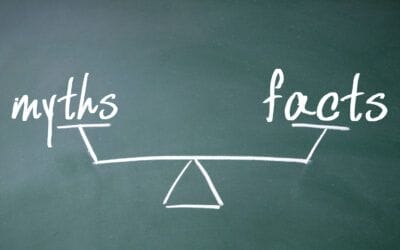In a another post, we discuss the differences between the GMAT and GRE. That background might be heIpful if you really want to understand the ins and outs of each test. If, however, you are just looking for general guidance on how to decide which test to...
GMAT/GRE
Verbal as the Key to a High Overall GMAT Score
In my last post I described how Data Sufficiency is, for many, the key to a high Quant score on the GMAT. I decided to continue this theme to discuss a related but, I think, more important point and one that I love to explain to people because it seems that...
Data Sufficiency as the Key to a High Quant GMAT Score
Back in the old days the GMAT Prep tests did not break down your performance by question type on the Quant and Verbal sections. Nor was there an Enhanced Score Report that did so on the actual GMAT. Now, with the existence of practice tests that indicate...
GMAT Scoring Algorithm: The First Ten Questions
It is a pretty well-accepted fact that within each section on the GMAT the early questions are slightly more important than the late ones (everything I have seen in all my years as a GMAT tutor has confirmed this and there have been some good experiments...
GMAT Myth or Fact?
You must get all, or at least most, of the early questions right in order to score well? As you will see with most of the myths/facts in this series, there is some truth and some fiction in the statement above. So let’s start with what definitely is true…...
GMAT Verbal Time Management: Speeding up on CR & RC
In this post I want to address one aspect of dealing with time management on the Verbal section of the GMAT: shaving time off of Critical Reasoning and Reading Comprehension questions. I recently tutored a couple of students who really benefitted from this...
GMAT Time Management: The 2 Kinds of Strategic Guessing
There are 2 different kinds of guessing that test takers should apply on the Quant section of the GMAT – both of them are crucial to success on the GMAT. But in my years of tutoring, I have found that most people just aren’t aware of how different guessing...
GMAT Time Management: The Myth of 2 Minutes Per Question
When preparing for the GMAT you will often hear people say that you should spend 2 minutes per question on Quant questions, yet this advice is misleading and I have seen it hurt many test takers. Of course with 45 minutes and 21 questions you do have on...
GMAT Scoring Algorithm: Quant vs. Verbal
In this post I would like to expound upon a theory of mine that gets at the slight differences in the scoring algorithm on the Quant and Verbal sections of the GMAT. In a previous post I commented on the fact that although on the Quant section the number of...
GMAT Sentence Correction: Right Answers Are Often Deliberately Bad
People studying for the GMAT are often completely thrown by a correct answer on a sentence correction question that just “doesn’t sound good.” In their minds they think, “there is no way that can be the correct answer – that just sounds bad.” Even if that...
Why Isn’t My GMAT Score Increasing? Reason 1
In my years as a GMAT tutor I have had many students come to me complaining that although they have done a lot of prep for the test, their scores just are not increasing. There are many reasons that this could be the case, but in this post I would like to...
Why Isn’t My GMAT Score Increasing? Reason 2
In a previous post I discussed one of the main reasons that a person’s GMAT score can appear not to increase. In this post I will posit what I believe to be the second most common cause: a complete misunderstanding of the test and what it takes to do well on...
Why Isn’t My GMAT Score Increasing? Reason 3
In a couple of previous posts I discussed some of the main reasons that people don’t see much of a score increase when preparing for the GMAT. In this post I will turn to yet another common cause of artificially low GMAT scores: poor time management! Over...
How to Get Hard GMAT Question Right!
The scoring algorithm on the GMAT is such that in order to achieve a high score on the test you have to be getting hard questions right. As most people understand, the number of questions that you get right is not the major factor…your score is based on the...
What Do the GMAT and GRE Really Test?
Virtually everyone who begins studying for the GMAT and GRE (and even many people who are months into the process) tend to misunderstand what the tests are really about. The GMAT and GRE are not typical tests for which you just memorize a body of content...
GMAT Tips: Information Overload on Data Sufficiency
There are many things that tend to give people trouble on Data Sufficiency, but one of the most common issues that people face is the problem of “information overload.” One of the skills that Data Sufficiency tests is a person’s ability to simultaneously...
Data Sufficiency Strategy for GMAT: A Crucial Decision Point
In a previous post I discussed the tendency that people have to “go on a hunch” on Data Sufficiency questions. This is a big no-no because DS questions are designed to punish people for making unwarranted assumptions. Generally speaking it is best to try to...
The Black Swan of Data Sufficiency
Many of you may be aware of the book The Black Swan by Nassim Nicholas Taleb. In the book Taleb uses the analogy of a black swan in nature to describe the problem of predicting highly improbable events. He comments that just because one has never seen a...
GMAT Tip: Avoiding Obvious Answers on Data Sufficiency Questions
When I tutor I often like to ask my students, “what makes a hard question hard from the point of view of the test writers?” Invariably I get answers that point to specific techniques that are used to dial up the level of difficulty, such as abstraction,...
Official GMAT Resources – Why Don’t People Use Them?
It never ceases to amaze me how few people use the official GMAT resources that are available. This is perhaps a credit to how good the major test prep companies have gotten at convincing people that their resources are an accurate representation of what is...
For more information, or to get started...




















